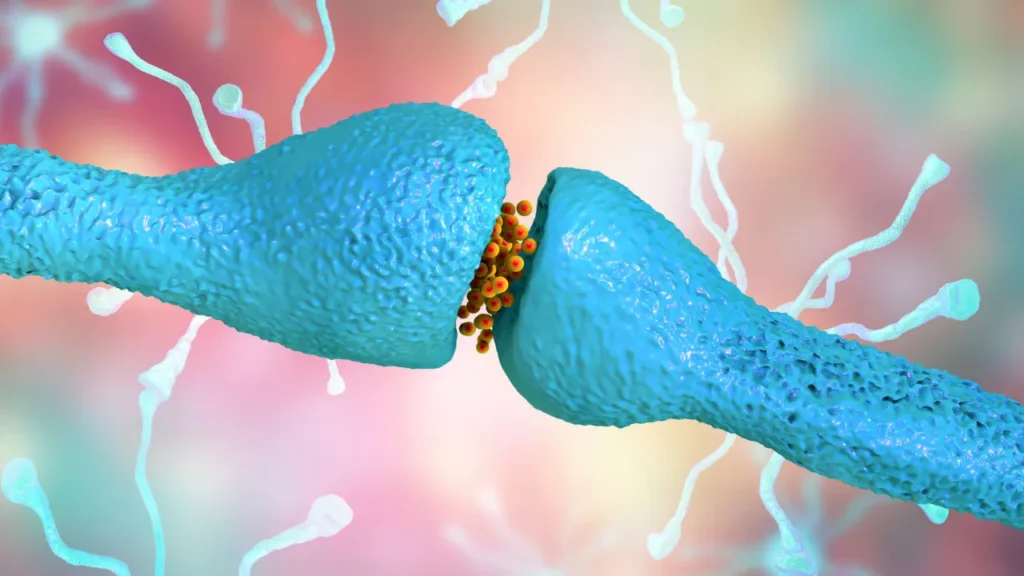Theaflavin is a polyphenolic molecule that is found largely in black tea. Theaflavin has received scientific and commercial interest due to its possible nootropic advantages, such as increased alertness, focus, and cognition. This chemical is a flavonoid and is well-known for its antioxidant and health effects. Theaflavin’s distinct chemical structure and interaction with physiological processes set it apart from other nootropics, thus making it of interest to researchers and consumers seeking cognitive enhancement.
You May Also Like:
What Are the Best Mushrooms for Brain Health? Here Are the Facts.
5 Things to Consider When Choosing the Best Mushrooms for Mental Health
Theaflavin: Benefits, Dosage, Side Effects, Drug Interactions, and Other Important Information is an original (NootropicsPlanet) article.
Nature of Theaflavin
Theaflavin is a complex polyphenolic molecule derived from the complicated fermentation of tea leaves. Theaflavin is the defining characteristic of black tea. The natural process of said fermentation converts catechins, the principal antioxidants in tea, into theaflavins, which are responsible for the characteristic color, flavor, and astringency of black tea.
At the molecular level, theaflavins are distinguished by their distinct benzotropolone ring structure, which is critical to their powerful antioxidant properties. This structural feature enables theaflavins to effectively scavenge damaging free radicals and bind metal ions, thereby reducing oxidative stress and providing health benefits. Theaflavins provide a unique combination between traditional tea fermentation and modern health science, demonstrating nature’s ability to develop chemicals with substantial therapeutic promise.
Health Benefits of Theaflavin
The health benefits of Theaflavin, particularly for brain function, have increasingly become the focus of scientific research, with speculation about its potential as a cognitive enhancer. Theaflavin’s impact on the brain is multifaceted, reflecting its complex chemistry and interaction with biological systems. Here, the article delves into the specific benefits of Theaflavin for cognitive health and brain function:
- Antioxidant Protection: Theaflavin’s potent antioxidant properties are central to its neuroprotective effects. By scavenging free radicals and reducing oxidative stress, Theaflavin helps protect neurons from damage. Oxidative stress is implicated in age-related cognitive decline and various neurodegenerative diseases, such as Alzheimer’s and Parkinson’s disease. The antioxidant activity of Theaflavin can thus play a critical role in maintaining neuronal integrity and function.
- Enhanced Neurotransmitter Function: Theaflavin appears to influence neurotransmitter systems, notably those involving dopamine and acetylcholine, which are essential for cognitive processes like attention, learning, and memory. By modulating these neurotransmitters, Theaflavin can enhance neural communication and potentially improve cognitive functions such as alertness and information retention.
- Neuroinflammation Reduction: Chronic inflammation within the brain is a risk factor for cognitive decline and neurodegenerative diseases. Theaflavin has demonstrated anti-inflammatory properties that may help reduce neuroinflammation, thereby supporting cognitive health. By inhibiting inflammatory pathways and cytokine production in the brain, Theaflavin can contribute to a healthier neural environment conducive to optimal cognitive function.
- Cerebral Blood Flow Improvement: Adequate blood flow to the brain is crucial for delivering oxygen and nutrients essential for cognitive function. Theaflavin has been shown to improve endothelial function, which can enhance cerebral blood flow. This effect not only supports overall brain health but may also improve cognitive performance, especially in tasks requiring attention and executive function.
- Neurogenesis and Synaptic Plasticity: Recent studies suggest that Theaflavin might influence brain plasticity, the ability of the brain to change and adapt by forming new neural connections. This includes promoting neurogenesis (the growth of new neurons) and synaptic plasticity (the strength of connections between neurons), which are fundamental processes for learning and memory. Enhancing these processes can contribute to improved cognitive function and resilience against cognitive decline.
- Protective Effects Against Neurodegenerative Diseases: The combined antioxidant, anti-inflammatory, and neuroprotective properties of Theaflavin may offer protective effects against neurodegenerative diseases. By addressing multiple pathways involved in the pathogenesis of these conditions, Theaflavin could potentially delay the onset or progression of these sorts of diseases.
- Mood Regulation: Theaflavin’s impact on neurotransmitter systems may also extend to mood regulation, potentially alleviating symptoms of depression and anxiety. By enhancing dopamine and serotonin levels, Theaflavin can contribute to improved mood states, which are closely linked to cognitive function and overall brain health.

Chemistry of Theaflavin
Theaflavin is produced during the fermentation process of black tea leaves by enzymatic oxidation of catechins, which are flavan-3-ols. This process results in the synthesis of complex polyphenols like theaflavins and thearubigins. The structure of Theaflavin is defined by its benzotropolone ring, which is essential for its antioxidant function. Black tea has four principal theaflavins: theaflavin-3-gallate, theaflavin-3′-gallate, theaflavin-3,3′-digallate, and Theaflavin itself. These components help to enhance the color, flavor, and health benefits of black tea.
Theaflavin’s antioxidant characteristics are due to its ability to scavenge free radicals and bind metal ions, both of which contribute significantly to its neuroprotective benefits. Theaflavin helps to maintain cellular integrity and function by reducing oxidative stress, notably in the brain.
Physiological Properties of Theaflavin
Theaflavin’s cognitive-enhancing benefits are mediated by several pathways. One key mechanism is its effect on neurotransmitter systems, specifically dopamine and acetylcholine, which are required for attention, learning, and memory. By modulating these neurotransmitter systems, Theaflavin may improve neuronal transmission and brain function.
Furthermore, Theaflavin decreases the activity of enzymes that degrade neurotransmitters in the brain, such as monoamine oxidase (MAO), potentially boosting their availability, improving mood, and cognitive function. The compound’s antioxidant characteristics contribute to its neuroprotective effects by lowering oxidative stress, linked to cognitive loss and numerous neurological disorders.

Optimal Dosage of Theaflavin
The ideal dosage of Theaflavin for cognitive enhancement is difficult to determine due to individual response variability and the restricted scope of human investigations. In general, drinking black tea, which contains about 30-80 mg of theaflavins per day, is regarded safe and perhaps advantageous. Supplement dosages can vary greatly; therefore, it is critical for you to follow manufacturer guidelines and get specific guidance from healthcare specialists.
Side Effects of Theaflavin
Theaflavin is generally well tolerated, with minimal documented negative effects when consumed in moderation as part of a black tea regimen. However, in concentrated supplemental forms, potential adverse effects may include gastrointestinal discomfort, jitteriness, or headache, especially in sensitive people or at high dosages.

Potential Substance Interactions
Regarding substance interactions, Theaflavin may interact with certain medications, including blood thinners, blood pressure medications, and chemotherapy drugs. This potential for negative interaction with these types of drugs is specifically due to its effects on enzyme activity and blood clotting. Individuals on these medications should consult a healthcare provider before adding Theaflavin supplements to their regimens.
Responsible Use
There are various factors to consider when using Theaflavin. It is important for you to begin with lesser dosages to assess your tolerance and gradually increase as needed, avoiding excessive use, leading to negative consequences. Monitoring one’s response and talking with healthcare specialists can help to maximize benefits while reducing hazards.
Theaflavin:
Conclusion
There are many types of teas that are consumed for nutritional value and health benefits. Black tea contains Theaflavin, which can be consumed for numerous positive reasons. This chemical found naturally within black tea is primarily an aid for brain health and cognitive function. Theaflavin can also potentially brighten your mood in addition to its nootropic properties. Consumption in prescribed amounts can serve as a component of a treatment plan for existing conditions or as part of a preventative treatment plan.

References:
- “Theaflavin – Uses, Side Effects and More.” Retrieved from: https://www.webmd.com/vitamins/ai/ingredientmono-1173/theaflavin
- “Theaflavin Chemistry and Its Health Benefits.” Retrieved from: https://www.ncbi.nlm.nih.gov/pmc/articles/PMC8601833/
- “Synthesis of Theaflavins and Their Functions.” Retrieved from: https://www.ncbi.nlm.nih.gov/pmc/articles/PMC6017393/
Important Note: The information contained in this article is for general informational purposes only, and should not be construed as health or medical advice, nor is it intended to diagnose, prevent, treat, or cure any disease or health condition. Before embarking on any diet, fitness regimen, or program of nutritional supplementation, it is advisable to consult your healthcare professional in order to determine its safety and probable efficacy in terms of your individual state of health.
Regarding Nutritional Supplements Or Other Non-Prescription Health Products: If any nutritional supplements or other non-prescription health products are mentioned in the foregoing article, any claims or statements made about them have not been evaluated by the U.S. Food and Drug Administration, and such nutritional supplements or other health products are not intended to diagnose, treat, cure, or prevent any disease.


